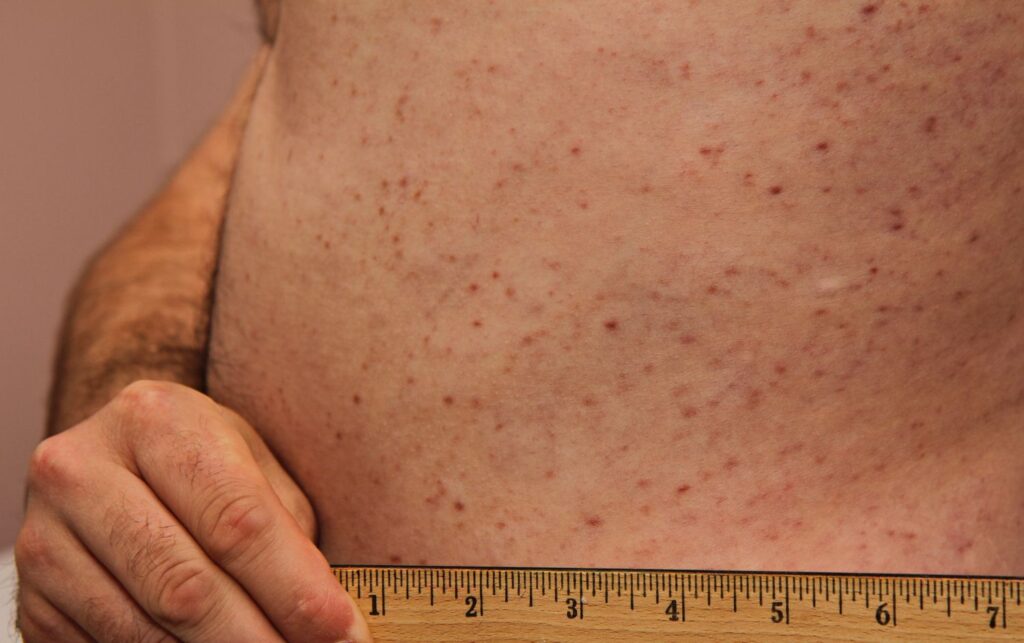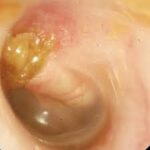Mast cell leukemia (MCL) is a rare and aggressive form of leukemia characterized by an abnormal proliferation of mast cells in the bone marrow and peripheral blood. It is classified as a subtype of systemic mastocytosis, a disorder involving excessive mast cell accumulation. MCL is associated with a poor prognosis due to its rapid progression and resistance to standard treatments.

Causes and Risk Factors
The exact cause of mast cell leukemia remains unclear, but genetic mutations, particularly in the KIT gene, play a significant role in disease development. Additional risk factors include:
- Genetic predisposition – Mutations in KIT D816V are common in aggressive systemic mastocytosis and mast cell leukemia.
- Environmental factors – Exposure to radiation or toxic chemicals may increase the likelihood of developing hematologic malignancies.
- Pre-existing mast cell disorders – Systemic mastocytosis can progress to mast cell leukemia in rare cases.
Signs and Symptoms of Mast Cell Leukemia
MCL presents with systemic symptoms due to excessive mast cell degranulation and tissue infiltration. Common symptoms include:
- Severe fatigue
- Hepatosplenomegaly (enlarged liver and spleen)
- Bone pain and fractures due to bone marrow infiltration
- Skin lesions similar to urticaria pigmentosa in some cases
- Anemia and thrombocytopenia leading to weakness and easy bruising
- Gastrointestinal symptoms such as diarrhea, nausea, and abdominal pain
- Hypotension and anaphylaxis due to excessive histamine release
Diagnosis of Mast Cell Leukemia
The diagnostic process for MCL involves multiple laboratory and imaging studies to confirm the presence of abnormal mast cells in blood and bone marrow.
Laboratory Tests
- Complete Blood Count (CBC) – Shows increased mast cells, anemia, and low platelet count.
- Serum Tryptase Levels – Elevated tryptase is a hallmark of mast cell disorders.
- Bone Marrow Aspiration and Biopsy – Demonstrates a high percentage (>20%) of mast cells in the bone marrow.
- Flow Cytometry and Immunophenotyping – Identifies mast cell surface markers (CD25, CD117).
- Molecular Testing for KIT Mutation – Confirms genetic mutations, particularly KIT D816V.
Imaging Tests
- Abdominal Ultrasound or CT Scan – Detects organ involvement such as hepatosplenomegaly.
- PET-CT Scan – Identifies systemic infiltration of mast cells.
Treatment Options for Mast Cell Leukemia
Due to its aggressive nature, MCL requires prompt and intensive treatment. Treatment strategies include:
1. Chemotherapy
- Cytoreductive Therapy: Cladribine and hydroxyurea are used to reduce mast cell burden.
- Multi-agent Chemotherapy: High-dose regimens like those used in acute leukemia (e.g., cytarabine and fludarabine) are considered.
2. Targeted Therapy
- Tyrosine Kinase Inhibitors (TKIs): Midostaurin (approved for advanced systemic mastocytosis) and newer TKIs targeting KIT mutations.
- Avapritinib: A selective inhibitor for patients with KIT D816V mutations.
3. Stem Cell Transplantation
- Allogeneic Stem Cell Transplantation (SCT): The only potentially curative option but is associated with high risks.
4. Supportive Therapy
- Antihistamines: H1 and H2 blockers to control mast cell-related symptoms.
- Corticosteroids: To reduce inflammation and immune response.
- Epipen (Epinephrine Auto-Injector): For anaphylactic reactions.
Prognosis and Survival Rate
Mast cell leukemia has a poor prognosis, with a median survival of less than one year in aggressive cases. Factors influencing survival include:
- Response to chemotherapy
- Presence of organ dysfunction
- Mutational profile (KIT D816V and additional mutations)
- Eligibility for stem cell transplantation
Early diagnosis and targeted treatment can improve life expectancy, but research into new therapies remains crucial.
Mast cell leukemia is a rare and aggressive hematologic malignancy that requires prompt diagnosis and intensive treatment. Advances in targeted therapies and stem cell transplantation offer hope for improved patient outcomes. Awareness, early detection, and multidisciplinary management are key in addressing this challenging disease.

